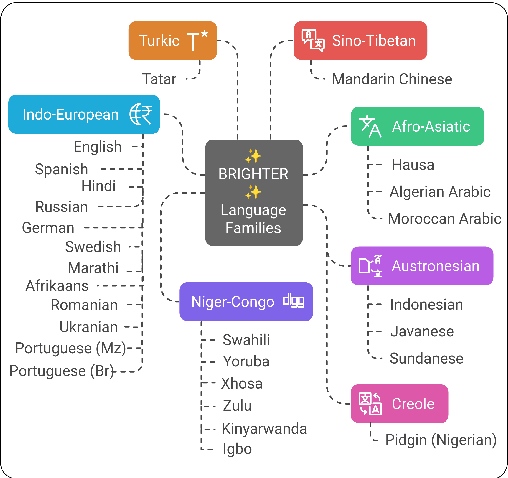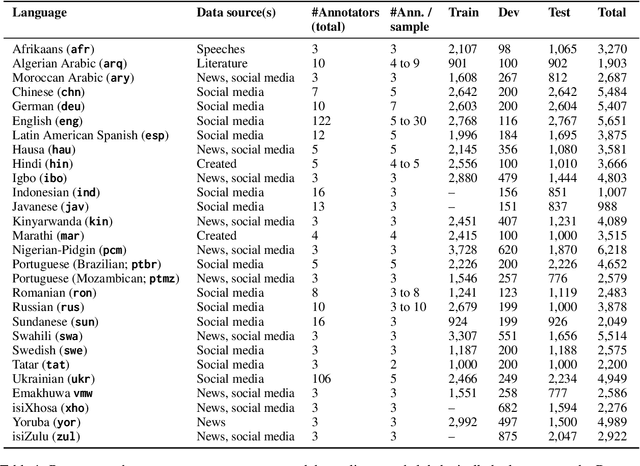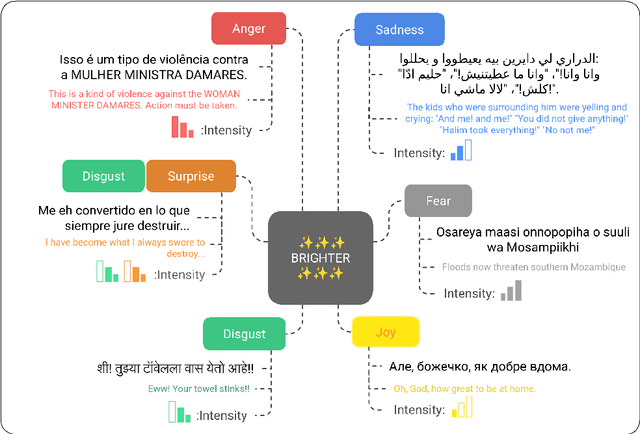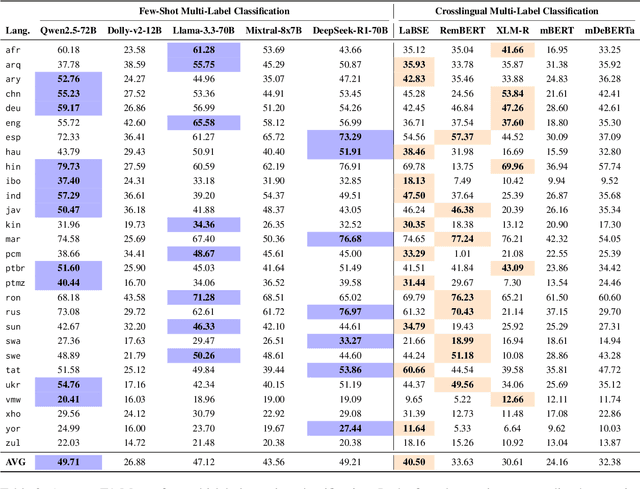BRIGHTER: BRIdging the Gap in Human-Annotated Textual Emotion Recognition Datasets for 28 Languages
Paper and Code
Feb 17, 2025



People worldwide use language in subtle and complex ways to express emotions. While emotion recognition -- an umbrella term for several NLP tasks -- significantly impacts different applications in NLP and other fields, most work in the area is focused on high-resource languages. Therefore, this has led to major disparities in research and proposed solutions, especially for low-resource languages that suffer from the lack of high-quality datasets. In this paper, we present BRIGHTER-- a collection of multilabeled emotion-annotated datasets in 28 different languages. BRIGHTER covers predominantly low-resource languages from Africa, Asia, Eastern Europe, and Latin America, with instances from various domains annotated by fluent speakers. We describe the data collection and annotation processes and the challenges of building these datasets. Then, we report different experimental results for monolingual and crosslingual multi-label emotion identification, as well as intensity-level emotion recognition. We investigate results with and without using LLMs and analyse the large variability in performance across languages and text domains. We show that BRIGHTER datasets are a step towards bridging the gap in text-based emotion recognition and discuss their impact and utility.
 Add to Chrome
Add to Chrome Add to Firefox
Add to Firefox Add to Edge
Add to Edge